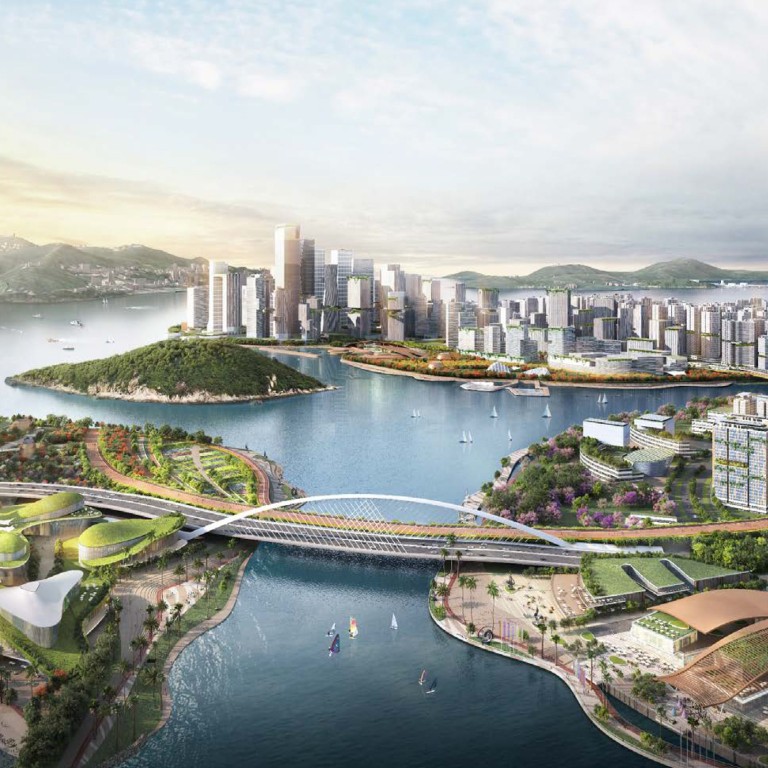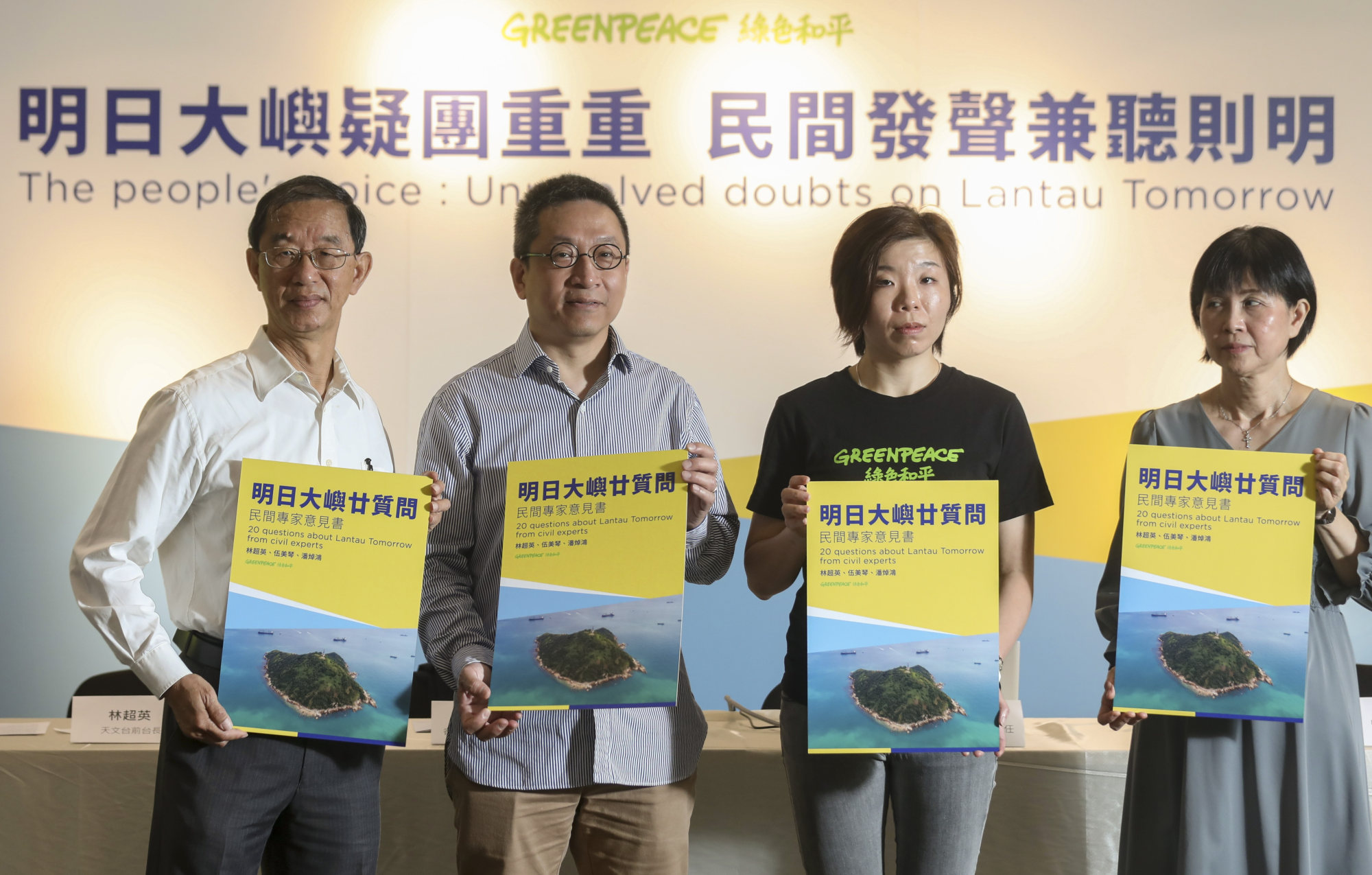
Green campaigners call for Hong Kong government to be upfront on real financial and environmental cost of Lantau land reclamation
- Greenpeace and others said there were at least 20 major questions on Lantau Island land reclamation project still to be answered
- Cost of work, the need for the land given the economy and risks caused by climate change highlighted by environmental campaigners
The real cost and environmental impact of a massive land reclamation project off Lantau Island should be properly outlined to the public by the Hong Kong government, a green group and professionals in the field have said.
Greenpeace and three individual experts on Friday denied they had misled the public over the proposal to create three artificial islands off Lantau.
They added there were at least 20 major questions the government had yet to properly answer about the “Lantau Tomorrow Vision” scheme, just a week before the end of public consultation.
“What the government should do is instead of just criticising, they can list all their responses clearly,” Ng Mee Kam, director of the urban studies programme at Chinese University, said.

Ng was joined by senior Greenpeace campaigner Chan Hall-sion, Lam Chiu-ying, an ex-director of the Hong Kong Observatory, and Jason Poon Chuk-hung, researcher at Hong Kong Strategies Solutions.
Some of the major concerns raised by the group’s 20 questions included concerns over the project’s environmental impact, the need for the land given a changed economy in Hong Kong and questions over the project’s costs.
Lam questioned whether the government had taken into account altered weather patterns caused by climate change.
He earlier warned of the danger from rising sea levels and whether the Lantau plan would be secure for future generations.
Lam said the government’s planned buffer zone of 20 to 30 metres (66 to 98 feet) was inadequate.
He highlighted that rises in the sea level of more than 1.5 metres could not be ruled out after 2100.
Lam also pointed out that, under the high carbon emissions projections made by the United Nations, sea levels could rise by as much as 5 metres by 2300.
He added that storm surges were also expected to worsen and that related costs for sea walls and other protection could cause a “bottomless pit” of expenditure.
Hong Kong authorities reveal transport plans for Lantau Tomorrow Vision
The government earlier accused pressure groups of spreading “misleading” information and “obstructing” the Lantau land reclamation plan.
The Lantau Tomorrow Vision, announced by former chief executive Carrie Lam Cheng Yuet-ngor in her 2018 policy address, is expected to provide enough land for 210,000 flats and a new business hub across 1,000 hectares of reclaimed land over the next two decades.
The work was at first projected to cost HK$500 billion (US$63.7 billion), but that went up to HK$580 billion in 2022 and the expected revenue from land sales was lowered to HK$750 billion from HK$925 billion.
But critics have insisted the budget predictions were a major underestimation.
‘5 years is too long’: Hong Kong families decry temporary closure of promenade
Poon said he believed the reclamation work would cost as much as HK$899 billion.
He said he based his calculations on other recent reclamation projects in Hong Kong such as the Tuen Mun-Chek Lap Kok Link road scheme, which opened in 2018, and the I-Park 1 incinerator project under development in Shek Kwu Chau.
Ng questioned whether it was feasible to establish a third business hub as part of the Lantau project.
She said there was a 19.7 per cent vacancy rate in commercial buildings at the city’s second business hub in East Kowloon.
Ng also argued that more land reclamation was unnecessary because, according to government figures from 2018, 88.5 per cent of the New Territories was under-utilised for housing.
Price tag for artificial islands off Hong Kong’s Lantau balloons to HK$580 billion
Bernadette Linn Hon-ho, the development secretary, addressed some of the concerns raised by the group at a separate event on Friday.
She countered that the reclamation project’s parameters were in line with UN projections and scientific standards.
Linn said that some parts of the new islands would be up to 9 metres above sea level, although she did not say whether that was enough to combat the possibility of more severe storm surges.
She explained the plan was built around Hong Kong’s future population and economic needs and highlighted that the city would need an extra 6,000 hectares (14,826 acres) for housing alone by 2048.
“It’s very difficult to imagine no opposition to a government project,” Linn said. “But the government eventually needs to make a decision that will benefit society.”

